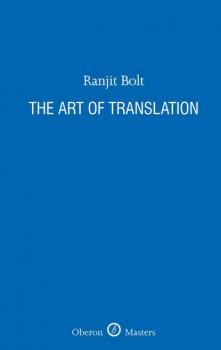Ranjit Bolt
Список книг автора Ranjit BoltLysistrata
Lysistrata is one of the few surviving plays written by Aristophanes. Originally performed in classical Athens in 411 BC, it is a comic account of one woman's extraordinary mission to end The Peloponnesian War. Lysistrata persuades the women of Greece to withhold sexual privileges from their husbands and lovers as a means of forcing the men to negotiate peace – a strategy, however, that inflames the battle between the sexes. The play is notable for being an early exposé of sexual relations in a male-dominated society. The dramatic structure represents a shift away from the conventions of Old Comedy, a trend typical of the author's career. It was produced in the same year as Thesmophoriazusae, another play with a focus on gender-based issues, just two years after Athens' catastrophic defeat in the Sicilian Expedition.This is a new translation by Ranjit Bolt.
The Misanthrope
First performed in Paris in 1666, The Misanthrope is one of Molière’s great comic masterpieces. Exasperated by the corruption of society, the cynical but noble Alceste wrestles with his love for the wordly and coquettish Célimène.This version of The Misanthrope was first performed at the Piccadilly Theatre, London, by The Peter Hall Company, starring Michael Pennington, Elaine Paige, and Peter Bowles. Ranjit Bolt has translated many of the world’s masterpieces of theatre including works by Sophocles, Goldoni, Corneille, Beaumarchais and Brecht. His highly successful translation of Molière’s The School for Wives (The Peter Hall Company) ran in the West End for six months.
The School for Wives
Molière, undoubtedly one of the greatest writers of comedy in the history of theatre, won enormous success for The School for Wives (L’Ecole des Femmes) in Paris in 1662; yet this highly popular play, satirising ridiculous male attitudes to women, aroused as much hostility as critical acclaim. Arnolphe, a narrow-minded merchant hoping to marry his young ward, Agnès, is obsessed with the fear of being made a cuckold. But all his artful plans serve only to speed him towards the fate he is so desperate to avoid.Molière himself first played the hapless merchant, and this believable character in an all too believable predicament both startled and delighted his public. This highly successful translation of The School for Wives , directed by Sir Peter Hall, ran in the West End for six months.
The Art of Translation
‘I try to follow the rule laid down by perhaps the greatest translator of all, John Dryden, who maintained that a translator should – and I paraphrase – make the version as entertaining as possible, while at the same time remaining as faithful as possible to the spirit of the original’ – Ranjit Bolt.In this book, Ranjit Bolt takes what is essentially a practitioner's view of the art of literary translation. His observations are born of a quarter of a century's experience of translating for a living, especially for the theatre. While rooted in practice, however, this survey does not shy away from theory, but is packed with allusion to great translation theorists such as Walter Benjamin and John Dryden, as well as adumbrating Bolt's own theoretical stance.‘There is much practical good sense in this engaging, good-humouredapologia pro domo’ – Times Literary Supplement ‘If you’re interested in writing plays you need to read The Art of Translation . Even if you have no intention of translating a play Bolt has a lot to teach about how dramatic language works.’ – The Stage ‘Bolt’s essay is provocative and engaging, drawing heavily on twenty years of direct first-hand experience as the writer of some of the most lively modern translations of classical into English… Bolt has a very satisfying turn of phrase, and the book is full of teasingly provocative and wondefully quotable opinions.’ – Journal of Adaptation in Film & Performance
Tartuffe
When the seemingly perfect Tartuffe ingratiates himself with the wealthy Orgon and his mother Madame Pernelle, he is soon welcomed into their home and into their lives. His combination of charm, respectability and religious authority proves so irresistible that he is eventually promised the hand of Orgon's daughter in marriage. But the rest of Orgon's family have grave doubts – is there more to Tartuffe than meets the eye? When the threat of eviction for the family and imprisonment for Orgon become apparent, is it all too late to find out? This hilarious and irreverent whirlwind of lies, religious hypocrisy and family feuds features one of theatre's most perfect comedy creations, the beguiling Tartuffe .




